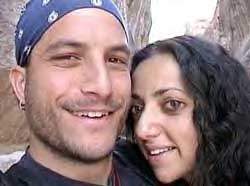Allegations of Wikipedia disinformation have been around a long time. It is certainly inevitable as an encyclopedia that (mostly) anyone can edit. As early as 2005 John Seigenthaler Sr, a journalist and writer, wrote an editorial in USA Today excoriating Wikipedia for his false biography. His biography included the spurious accusation that Seigenthaler was "thought to have been directly involved in the Kennedy assassinations of both John, and his brother, Bobby."
Seigenthaler wrote:
When I was a child, my mother lectured me on the evils of "gossip." She held a feather pillow and said, "If I tear this open, the feathers will fly to the four winds, and I could never get them back in the pillow. That's how it is when you spread mean things about people."
For me, that pillow is a metaphor for Wikipedia.
Since 2005 and this notorious incident, Wikipedia has made some changes in its "Biography of Living People" policies essentially in order to avoid suits and legal problems; but its policies in contentious areas do very little to prevent racism or other forms of political bigotry, which remain very much there. Policies are in place, but are broad enough or unenforceable enough that there is plenty of "gossip," to put it kindly, masquerading as "fact" in Wikipedia today.
Liberal bias has long been asserted on Wikipedia. Matthew Sheffield, writing for the Washington Post, accused Wikipedia of having "tilted leftward." Indeed the bias was pronounced enough to prompt the creation of the conservative wiki called Conservapedia with its article called "Examples of Bias in Wikipedia"
John Farrell, writing for Cosmos Magazine in 2007 noted:
"An increasing number of academics - many of whom have helped edit the resource to maintain informal quality control - are concerned that Wikipedia is becoming a stronghold for cranks: people who anonymously submit and edit entries on pet subjects to bolster the credibility of highly questionable theories."
Equally concerning for some of us are the allegations that Wikipedia is anti-Israel, and that the "highly questionable theories" being pumped out are pumped out by "cranks" with axes to grind.
In 2008, David Shamah, writing for the Jerusalem Post in his article "The other side of Wikipedia, writes
As most of us have come to realize, it's too late for Wikipedia, as far as Israel is concerned. The "Npov" crowd (an acronym for the supposedly Neutral Point of View of Wikipedia editors) have basically installed themselves in the positions of editorial authority that control the site.
.....
So, for someone looking for the truth about Israel, Wikpedia is pretty much a dead end - it seems to carry only the "truth" as approved by the international Arab propaganda machine."
But is it merely Israel? Or is there an anti-Jewish bias as well? Stephen Dubner notes
"Also, FWIW, has anyone else noticed that Wikipedia entries often exhibit a rather serious interest in a subject’s religious background? particularly if the subject is Jewish?It turns out that Sergey Brin of Google has also noticed this."
And in fact, Google co-founder Sergey Brin, in this 2007 interview, specifically fingers Wikipedia when asked if he has experienced antisemitism.
"'I’ve experienced it',he tells me. 'Usually it is fairly subtle. People harp on all media companies being run by Jewish executives, with the implication of a conspiracy.' As an example, he cites the entry about him in Wikipedia, the popular online encyclopedia that famously accepts submissions and edits from anyone. 'The Wikipedia page about me will be subtly edited in an anti-Semitic way,' he says."
Author Karen McQuillan, in a FrontPageMag article entitled ''Wikipedia's Jewish Problem'' describes the editing environment at Wikipedia:
Unless you like endless fighting with anti-Semites and Israel-haters, it is not pleasant to try to contribute to topics dealing with Israel. Major topics like Jerusalem or the Holocaust attract enough attention that destructive editors’ depredations are kept at a minimum.
Propaganda purporting to be reference material, such as "Israel and the Apartheid Analogy," is tolerated although it is against the rules.
This system has not worked well on Jewish or Israel related topics. As Larry Sanger points out, it is a system that is easily gamed by the malicious, abetted by a nerd culture that doesn’t understand proper supervision.
Recent articles bemoaning Wikipedia's Israeli coverage include articles in the left-wing Israeli paper, Ha'aretz "Wikipedia editors: Coverage of Israel 'problematic," in which author Cnaan Liphshiz notes that "[Wikipedia] Editors say world's fourth most popular Web site presents "problematic views on Hamas, Iran, Holocaust denial."
Haviv Gur, in the Jerusalem Post, describes the anti-Israel editors as "anti-Israel 'mobs'" and part of international campaign to erode Israel’s legitimacy" which is "slowly expanding its reach into the online encyclopedia Wikipedia..." adding,
However, in recent months, Israeli editors have sensed a growing presence of pro-Palestinian activists who have begun to develop ways to sidestep these controls. The result has been the introduction of narratives that question Israel’s legitimacy and advocate international legal and political action against the Jewish state.
These activists also use teams of like-minded editors working together to sustain debates about new edits ad infinitum, thus improving the chances that their changes will be accepted and preventing the removal of any claims they have added.
Other methods used by editors to push their political view into the encyclopedia include censorship and personal attacks.
In an article by Andre Oboler (a one-time editor in Wikipedia) and others, the authors show how biased editors can write articles and censor out criticism of a favored subject. "Yet Wikipedia as a system doesn't seem to know how to deal with this damage, or perhaps it is just that various admins don't want to get involved? Either way the system relies on people's honesty and continues to be broken as Palestinian advocates seek to exploit it," Oboler notes in an article in AISH.
As Matthew Sheffield says "What this means in practical terms is that people with enough determination to force their viewpoints on Wikipedia can do so."
Add to this numerous Arabs, Muslims, and Islamists along with garden-variety antisemites on Wikipedia and if you imagine that the Israeli-Palestinian conflict area in Wikipedia is rife with anti-Israel ("anti-Zionist") propaganda, and you would be right.
This anti-Israel bias has not escaped the notice of mainstream media, "leading" editors of Wikipedia or the government of Israel. One such editor of Wikipedia was invited to Israel by the Foreign Ministry.
In 2009, David Saranga from the Consulate General in New York, invited Wiki editor David Shankbone and a dozen or so American journalists to Israel in hopes of expanding their (the US media's) "one-dimensional view of Israel."
Saranga says Wikipedia is generally fair in regard to Israel. He is unfazed when he hears that the entry on Israel mentions the word "occupation" nine times, whereas the entry on the Palestinian People mentions "terror" only once. "It means only one thing: Israelis should be more active on Wikipedia. Instead of blaming it, they should go on the site much more, and try and change it."
Jimbo Wales also called on Israelis to join Wikipedia just last year.
Indeed Wikipedia could use an infusion of Israelis and pro-Israel Jews and others to counteract the Arab propaganda "mob," or at least to provide some balance to many of the articles. However, as Karen McQuillan noted above, it requires "endless fighting with anti-Semites and Israel-haters."
Wikipedia claims to be based on "Five Pillars" or fundamental principles. Presenting a neutral point of view, is one, and respectful interaction another. When it comes to the Israel-Palestinian conflict, neither is upheld. In fact, in this area, it is not even true as claimed that it is an encyclopedia that "anyone can edit." The leftist/Arab/anti-Israel/antisemitic majority pushes and shoves and elbows out and finally bans any editors who support a fair and balanced approach to the subject.







